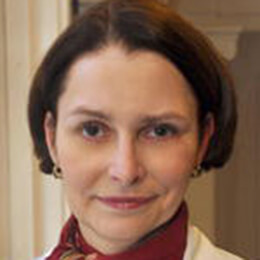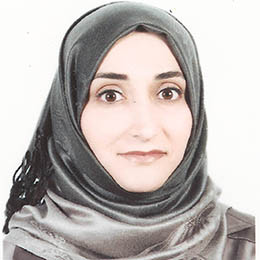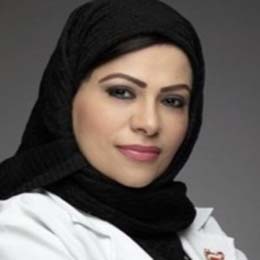
Chief Executive and Director, Harvard Medical School International Center for Genetic Disease
Principal Investigator and Director, Bahrain National Genome Program at Harvard
Assistant Professor of Medicine, Harvard Medical School, and Brigham and Women's Hospital

Dean, Harvard School of Dental Medicine
Professor of Oral Medicine, Infection, and Immunity

Chairman, Department of Genetics, Harvard Medical School
George Jacob and Jacqueline Hazel Leder Professor of Genetics

Chief, Department of Pediatrics of Boston Children's Hospital
Mary Ellen Avery Professor of Pediatrics, Harvard Medical School
President, The Children’s Hospital Pediatric Associates

Director, NHGRI Center for Excellence in Genomic Science
Robert Winthrop Professor of Genetics, Harvard Medical School
Professor of Health Sciences and Technology, Harvard and MIT
Founding Core Faculty and Lead, Wyss Institute, Harvard University

Professor of Medicine, Harvard Medical School
Division of Genetics, Brigham and Women’s Hospital

Division Director, Maternal Fetal Medicine and Reproductive Genetics
Brigham and Women’s Hospital
Clinical Lead, Maternal Fetal Care Center, Boston Children’s Hospital
Professor of Obstetrics, Gynecology and Reproductive Biology, Harvard Medical School


Chief, Division of Genetics and Genomics, Boston Children’s Hospital
Bullard Professor of Pediatrics and Neurology at Harvard Medical School
Investigator, Howard Hughes Medical Institute
Director and co-PI, Allen Discovery Center for Human Brain Evolution
Associate Member, Broad Institute of MIT and Harvard
Chief of Medical Genetics and Metabolism, Massachusetts General Hospital
Co-Director Pitt Hopkins Syndrome Clinic, MGH
MGH Site Director, Undiagnosed Diseases Network
Assistant Professor of Pediatrics, Harvard Medical School

Chief Data Officer and Institute Scientist
co-Director, Eric and Wendy Schmidt Center
Broad Institute of MIT and Harvard

Lecturer on Medicine, Harvard Medical School
Director for Research, Harvard Medical School International Center for Genetic Disease
Senior Scientist, Department of Medicine
Brigham and Women’s Hospital
Harvard Medical School

2023 Nobel Laureate in Physiology or Medicine
Roberts Family Professor in Vaccine Research
Perelman School of Medicine, University of Pennsylvania

Director, Metabolism Program
Boston Children’s Hospital Harvey Levy Chair in Metabolism
Boston Children’s Hospital Professor of Pediatrics
Harvard Medical School

Director of the Finnish Institute for Molecular Medicine (FIMM)
Founding Chief of the Analytic and Translational Genetic Unit (ATGU)
Massachusetts General Hospital
Associate Professor of Medicine at Harvard Medical School
Institute member, Broad Institute of MIT and Harvard

Member of The Faculty, Harvard Medical School
Division of Genetics, Brigham and Women’s Hospital
Professor of Medicine, University of Paris

Lecturer on Medicine, Harvard Medical School
Director for Research, Harvard Medical School International Center for Genetic Disease
Senior Scientist, Department of Medicine
Brigham and Women’s Hospital
Harvard Medical School


Co-Director of the Mendelian Genomics Research Center
Broad Institute of MIT and Harvard
Assistant Professor of Pediatrics, Harvard Medical School

Attending, Department of Cardiology, Boston Children’s Hospital
Instructor in Pediatrics, Harvard Medical School
Postdoctoral Research Fellow
Department of Biomedical Informatics, Harvard Medical School

Obstetrics and Gynecologist
Reproductive Geneticist
IVF Florida Reproductive Associates, Margate, Florida

Clinical Director, Division of Cancer Genetics and Prevention
Senior Physician, Dana-Farber Cancer Institute
Assistant Professor of Medicine, Harvard Medical School


Clinical Coordinator, Undiagnosed Diseases Network
Genetic Counselor
Massachusetts General Hospital


Associate Director, MGB Laboratory of Molecular Medicine
Director, Translational Genomics Core, MGB Personalized Medicine
Assistant Professor of Pathology Harvard Medical School

Director, Harvey Levy Program for Phenylketonuria and Related Conditions
Director, PAL (Phenylalanine Ammonia Lyase) Clinic
Attending Physician, Boston Children’s Hospital
Assistant Professor of Pediatrics, Harvard Medical School

Program Manager
Harvard Medical School International Center for Genetic Disease
Brigham and Women’s Hospital

Lead Medical Illustrator, International Center for Genetic Disease
Chief Medical Illustrator and Creative Director, Journal of Global Neurosurgery

Project Coordinator
International Center for Genetic Disease
Brigham and Women’s Hospital
Harvard Medical School

Finance and Administration Manager
International Center for Genetic Disease
Brigham and Women’s Hospital
Harvard Medical School

Public Outreach & Communications Lead
International Center for Genetic Disease
Brigham and Women’s Hospital
Harvard Medical School

Associate Professor of Medicine, Arabian Gulf University
Chief of Medical Staff for Medical Departments in Salmaniya Medical Complex
Chairperson of the hereditary blood diseases , Salmaniya Medical Complex
Senior Consultant in Infectious Diseases, Internal Medicine, and Geriatric Medicine

Chief, Reference Public Health Laboratories (PHLs)
Chief, National Influenza Center, Public Health Directorate
Ministry of Health, Kingdom of Bahrain.
Copyright © 2020-2025 iCGD. All rights reserved | Site by Xiteb®

